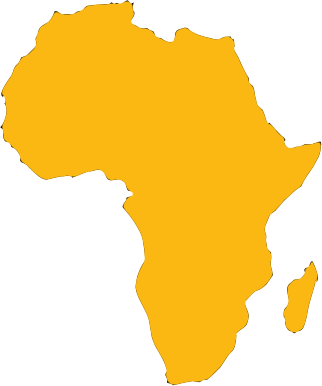South Africa, China and BRICS on Gaza
By Emmanuel Matambo, Centre for Africa-China Studies (CACS), University of Johannesburg
Among the old five BRICS members, South Africa and China have been clear in their position on Israel’s war with Hamas. They desire protection of civilian lives on both sides, while leaning more towards the Palestinian side which has been the victim of disproportionate violence. The two countries will also have to contend with India’s seeming support for Israel, and mull over what the incoming presidency of far-right Javier Milei in Argentia, a country invited to join BRICS, means for the group. China and South Africa are a countervailing influence against Western pro-Israel bias. This balance of positions could contribute towards a less destructive and sanguinary end to the current war. While South Africa’s conduct on issues such as the Russia-Ukraine war and the chaos in its neighbour – Zimbabwe – have been curious, to put it politely, on the issue of Palestine it seems to be uncharacteristically vocal, proactive, and alive to the country’s own history of apartheid and disenfranchisement. South Africa has been firm in condemning the abduction of innocents by Hamas but has equally been insistent in condemning Israel’s indiscriminate siege of Gaza.
During his state visit to Qatar, South Africa President, Cyril Ramaphosa
announced that “As South Africa, we have accordingly, as many countries in the world see fit, [referred] this whole Israeli government action to the International Criminal Court. We have put in a referral because we believe that war crimes are being committed there and of course, we do not condone the actions which have been taken by Hamas. Similarly, we condemn actions which are under way, and we think they warrant an investigation by the ICC.” His sentiments came on the back of Israel’s bombardment of Gaza, initially a retaliatory act against Hamas, and a rescue mission of the 240 hostages that Hamas had seized on 7 October. Ramaphosa noted that Israel’s actions had gone beyond these parameters to include raids on “hospitals where babies, women and the injured are dying like flies.”
On the other hand, the United States has given Israel unyielding support, and compounded a volatile situation by
sending an Ohio-class submarine to the U.S. “area of responsibility, which includes the eastern Mediterranean, Red Sea, Persian Gulf, and Gulf of Oman.” The Dwight D. Eisenhower Carrier Strike Group (IKECSG) had
arrived in the Middle East few days earlier. This show of military force and support, leavened by the high calibre of American visits to Israel, has had the predictable effect of Israel’s neighbours being implacable in their hostility to Israel, a state that extremist elements have long considered an incongruity in the region, and a Western imposition on an otherwise Arab region. This explains why BRICS, a group more aligned to the plight of the Palestinians, and more acceptable to the Middle East, could have a positive impact on the rapidly escalating situation in Gaza and Israel.
Six days after South Africa referred Israel to the ICC, on 21 November 2023 Ramaphosa, as BRICS chair, convened the (virtual) BRICS Extraordinary Joint Meeting of BRICS Leaders and Leaders of invited BRICS Members of the situation in the Middle East. On the same day, the South African parliament voted on a motion proposed by South Africa’s third biggest political party, the Economic Freedom Fighters (EFF), on 17 November
calling for the “closure of the Israel Embassy in South Africa and suspension of all diplomatic relations with Israel.” The ruling African National Congress (ANC) seconded the motion, and it passed with 248 in favour, 91 against, and no abstentions. The ultimate version of the motion, proclaimed by ANC Chief Whip, Pemmy Majodina,
read, “That the House – calls upon the government to close the Israeli Embassy in South Africa and suspend all diplomatic relations with Israel until a ceasefire is agreed to by Israel and Israel commits to binding United Nations-facilitated negotiations whose outcome must be a just sustainable and lasting peace.”
The day after the BRICS extraordinary joint meeting and the vote in South Africa’s parliament, Israel and Gaza
agreed to “the return of 150 Palestinian prisoners held in Israeli jails in exchange for the release of at least 50 women and children held in Gaza during a four-day pause in fighting.” The commission of the agreement was delayed but effected on 24 November. Qatar was the chief facilitator of the lull. How much this agreement and its timing was owed to South Africa, China and the BRICS, is difficult to establish. However, BRICS could exercise a stabilizing and restraining hold on the Middle East, chiefly on actors such as Iran whose temptation to join Gaza in stemming Israel’s bombardment could trigger off a regional conflagration. China could be particularly crucial on this score, having
midwifed a reconciliation breakthrough between Iran and Suadi Arabia in March 2023 before the two countries were invited, in August, to join BRICS.
China has provided $2 million in emergency humanitarian assistance to Gaza, in addition to food and other emergency needs worth millions of RMB. As president of the Security Council, China, was at the forefront of the United Nations Resolution 2712 (16 November 2023), “
concerning the crisis facing the Palestinian people in the Gaza Strip and its demand that all parties comply with their obligations under international law, including international humanitarian law, notably with regard to the protection of civilians.” The Bureau of the United Nation’s General Assembly’s Committee on the exercise of the inalienable rights of the Palestinian people lauded the move, calling for parties to implement it without qualification including the call for “urgent and extended humanitarian pauses and corridors for a sufficient number of days throughout the Gaza Strip to enable, consistent with international humanitarian law, the full, rapid, safe and unhindered humanitarian access for United Nations humanitarian agencies and their implementing partners.” During the BRICS extraordinary joint meeting, Xi Jinping stated his country’s position, this one not circumscribed by Security Council strictures. He argued that the current war was a result of decades of denial of Palestinian rights to existence, statehood and return.
Other BRICS members and invited members might not share the positions that South Africa and China have taken. India, whose Prime Minister did not attend the extraordinary joint meeting, partly as retaliation for Xi’s absence at the G20 hosted by India in September, has shown eagerness to support Israel. India, along with 44 other countries,
abstained from an October 27 U.N resolution that called for a humanitarian truce. 120 countries voted in favour, and 14 voted against. This was deviation from India’s historical support of Palestine. However, it is not surprising, considering that Narendra Modi’s government has far-right moorings whose antipathy to Islam is barely concealed.
Another far-right element that can further erode the cordiality of BRICS comes in the form of Javier Milei, Argentina’s far-right president-elect, a Donald Trump and Jair Bolsonaro political clone, if ever there was one. It is left to see whether Argentina, under a Milei presidency, will accept the invitation to join BRICS. These dynamics are bound to put the expanded BRICS through a stern test. It will also exercise the diplomatic and practical abilities of old BRICS members, chiefly China with its incomparable economic size and political influence. Thus far, the case of Gaza has shown South Africa’s and China’s mettle, and the carefully-worded
statement that emanated from the extraordinary joint meeting was cleverly crafted to look like a consensus-driven document, condemning “[a]act of violence aimed at Palestinian and Israeli civilian,” even though bubbling under the surface was China’s and South Africa’s defensible support for ordinary Gaza residents.
Emmanuel Matambo is the Director of Research at the Centre for Africa-China Studies - University of Johannesburg
Article Tags
 Africa
Africa Education
Education Joburg
Joburg South Africa
South Africa Greatest Africans
Greatest Africans Africa
Africa Education
Education Joburg
Joburg South Africa
South Africa Greatest Africans
Greatest Africans